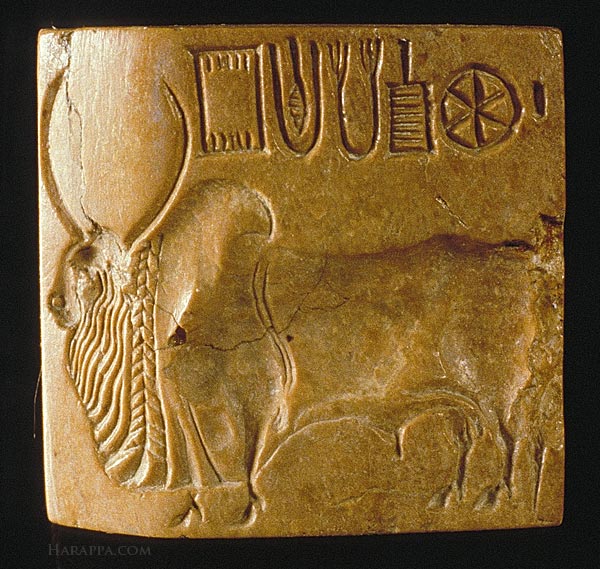Great Cities, Small Treasures
A traveling exhibition organized by the Asia Society Galleries, New York in collaboration with the Department of Archaeology and Museums, Ministry of Culture and Tourism, Government of Pakistan. [Open Feb. 10-April 19, 1999 at the Pacific-Asia Museum in Pasadena, CA. Now closed. Catalog available.]

Great Cities, Small Treasures is an exhibition that introduces American audiences for the first time to the important and virtually unknown archaeological remains of the Indus Valley civilization (2600-1900 B.C.).

As old as the pyramids of Egypt and the ziggurats of Mesopotamia, this is one of the major civilizations of the ancient world, yet it remains virtually unknown to American audiences.
Great Cities, Small Treasures presents 104 objects from Indus Valley sites of trade destinations. Works include those made of gold, silver, bronze, lapis lazuli, carnelian, stone, clay, shell, bone and ivory. The famous priest-king of Mohenjo-daro and several beautifully crafted seals are among the highlights of the show. Most of the pieces in the show have been borrowed from the Government of Pakistan.

Through the display of various art styles, symbolic ritual pieces, ornaments, toys, tools and utensils, the American public will learn about the technological achievements and cultural diversity present in these ancient sites.
This exhibition underscores the importance of South Asia, specifically Pakistan and western India, as the birthplace of a unique, highly developed and technologically sophisticated civilization. It opened at the Asia Society Galleries on February 11, 1998 and was on view until June 7, 1998. The exhibition is at the Elvehjem Museum of Art in Madison, Wisconsin from Sept. 19 to Nov. 8th 1998. It will open at the Pacific Asia Museum in Pasadena, California starting in February 1999.
 The guest curator for Great Cities, Small Treasures is Dr. Jonathan Mark Kenoyer, Associate Professor, University of Wisconsin (UW), Madison, one of the leading scholars of the Indus Valley civilization and traditional crafts of the subcontinent.
The guest curator for Great Cities, Small Treasures is Dr. Jonathan Mark Kenoyer, Associate Professor, University of Wisconsin (UW), Madison, one of the leading scholars of the Indus Valley civilization and traditional crafts of the subcontinent.
Dr. Kenoyer has conducted research in Pakistan and India for over 20 years. He is currently co-director and field director of the Harappa Archaeological Research Project (HARP).
